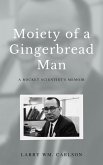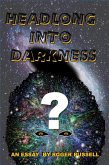Born in France in 1809, Louis Braille was the fourth child of a village saddler. At the age of three, he stabbed himself in the eye with a pointed tool taken from his father's work bench.
Some thirteen years later he again took a sharp tool from the same bench and used it to create a code of raised dots punched through sheets of paper. With the patience of genius, he perfected his code - still unsurpassed - and fashioned an alphabet that opened the world of learning to the blind.
Louis Braille died at the age of forty-three, unknown and unhonoured. His superiors at the Royal Institute for the Young Blind in Paris would not recognise a system that was not based on the shapes of the alphabet.
Lennard Bickel researched this story in Paris and in the small village where Louis Braille was born. He tells of the trials and torments of young blind man struggling amid the harshest conditions to perfect something he believed in.
Triumph Over Darkness, first published in 1988, is a stirring story of determination and tenacity in the face of adversity.
Some thirteen years later he again took a sharp tool from the same bench and used it to create a code of raised dots punched through sheets of paper. With the patience of genius, he perfected his code - still unsurpassed - and fashioned an alphabet that opened the world of learning to the blind.
Louis Braille died at the age of forty-three, unknown and unhonoured. His superiors at the Royal Institute for the Young Blind in Paris would not recognise a system that was not based on the shapes of the alphabet.
Lennard Bickel researched this story in Paris and in the small village where Louis Braille was born. He tells of the trials and torments of young blind man struggling amid the harshest conditions to perfect something he believed in.
Triumph Over Darkness, first published in 1988, is a stirring story of determination and tenacity in the face of adversity.









